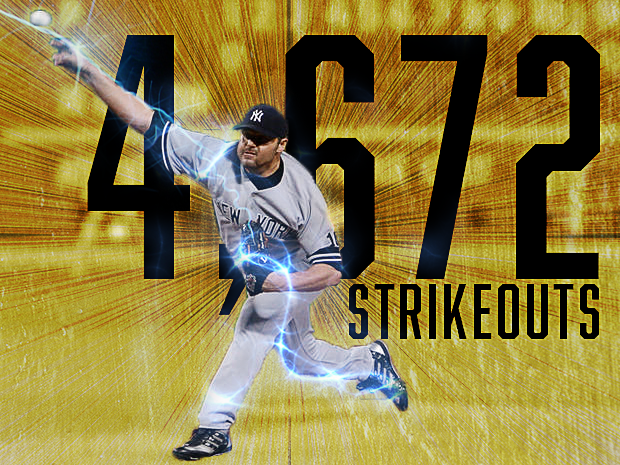Over the course of the past few weeks here at Pitcher List, we’ve been voting on what Hall of Fame-eligible players we think should be inducted into Cooperstown, and defending certain guys.
But here I’m not going to defend one single player, rather, I’m going to defend an era of players—the players of the “Steroid Era.”
Personally, I’m proud of my Pitcher List colleagues—they voted in both Barry Bonds and Roger Clemens, two players who are pretty much the face of this debate. In fact, both Bonds and Clemens got 85.37% of the vote from our writers, and I think that represents a shift in the way people are viewing these guys.
That’s a good thing and every player who statistically deserves it should be elected into the Hall of Fame. “Did they use steroids?” is not a valid argument to keep them out, and here’s why.
The Hall of Fame is already full of cheaters
The most common argument against letting the PED players into the Hall of Fame that I’ve heard is that they cheated. Plain and simple, they cheated, and cheaters should not be allowed into the Hall of Fame.
That’s fine. That’s a perfectly legitimate opinion to have. However, if you have that opinion, I hope you also believe that the following players should be removed from the Hall of Fame:
- Gaylord Perry admitted, on multiple occasions, that he doctored baseballs, often with Vaseline, going so far as to say once that he approached executives from Vaseline “and told them they had the best product out there.”
- Whitey Ford admitted to doctoring baseballs after he retired. But it’s cool, he only did it once he was old: “I didn’t begin cheating until late in my career, when I needed something to help me survive,” he said in 1988. “I didn’t cheat when I won the 25 games in 1961. I don’t want anybody to get any ideas and take my Cy Young Award away. And I didn’t cheat in 1963 when I won 24 games. Well, maybe a little.”
- Don Sutton was caught with a scuffed ball in 1978 and was accused of doctoring balls for years. He never fully admitted it, but when he was asked if he ever put any foreign substances on the ball, he replied “Not true at all. Vaseline is manufactured right here in the United States.” When he was asked by MLB.com if he ever cheated, he responded, “No, I never got caught cheating.”
- Roger Hornsby wrote an article in 1961 called “You’ve Got to Cheat to Win.” In it, he said, “I’ve been in pro baseball since 1914 and I’ve cheated, or watched someone on my team cheat, in practically every game. You’ve got to cheat. I know if I had played strictly by the rules I’d have been home feeding my bird dogs a long time ago instead of earning a good living in baseball for 47 years.”
And this isn’t to mention the players who used amphetamines (like Willie Mays, who supplied then to players in 1973) or players in the Hall of Fame who cheated and never got caught. We don’t know. Considering the MLB’s stringent drug testing policy wasn’t around until 2005, we have no idea how many of the Steroid Era players cheated (let alone the players before them).
And even the players who we do know took steroids, we don’t necessarily know when they started. Take Rafael Palmeiro for example—he famously failed a PED test in 2005, the final year of his career. Could he have been doing steroids his entire career? Maybe (I don’t think so), but as of now all we know is that he was caught using in 2005.
So let’s assume he only took steroids in 2005 and we scrap all of those stats entirely. That still leaves him with 551 career home runs, 2,922 hits, 1,775 RBI, three Gold Gloves, and four All-Star appearances. That still sounds like a pretty Hall of Fame-worthy career to me. And if he had retired after the 2004 season, I think he’d be in without question.
Here’s my point—unless you want to purge the Hall of Fame of every single accused cheater or admitted/caught cheater, then the Steroid Era players should be in. And if you do want to purge the Hall from all those players, that’s fine, but you’re gonna have a pretty small Hall of Fame.

Graphic by Justin Paradis (@freshmeatcomm on Twitter)
The Hall of Fame celebrates great players, not great people
I really can’t stand viewing the Hall of Fame as some holy site where only the paragons of morality from the game of baseball are allowed in. Because that’s just not true.
Ty Cobb is in there, and while a lot of the stories surrounding him are more myth than reality, the dude did still beat up a crippled man missing an entire hand and most of his other hand after the guy heckled him. And he slapped a groundskeeper who tried to shake his hand and then choked the guy’s wife when she tried to intervene.
And Tom Yawkey, former president of the Boston Red Sox? He’s in the Hall of Fame too, and he not only wanted to keep the Red Sox segregated, he also kept clubhouse attendant Donald Fitzpatrick employed for years, despite sexual abuse accusations (Fitzpatrick pleaded guilty to four counts of attempted sexual battery in 2002).
And the thing is, those two are far from the only people in the Hall of Fame who did morally questionable (or reprehensible) things. I’m not going to sit here and pretend like Barry Bonds was a good dude. He wasn’t, he was a jerk, but I don’t think that should have any bearing on whether he’s in the Hall of Fame.
It’s the same reason Curt Schilling should be in the Hall of Fame. Is he an awful person? Yeah, I think so. Is he nuts? Yeah, he is. Was he one of the greatest pitchers of his era? Yeah, he was. If you want to argue that Schilling shouldn’t be in because his stats weren’t good enough, that’s fine, that’s a valid debate to have. But you can’t exclude him from the Hall because of who he is as a person.
“But how do I explain to my children that Barry Bonds and Roger Clemens were allowed into the Hall of Fame?!” you may ask. It’s pretty easy. You tell them that Bonds and Clemens likely used steroids in their careers, and that was something bad that they should not have done. And that’s about it.
Also, and call me crazy, I don’t think the fact that Bonds or Clemens is in the Hall of Fame is going to morally corrupt your young child beyond redemption.
Steroids don’t make bad players great
Steroids certainly can help, I’m not going to pretend like they don’t help players gain an advantage, but they don’t turn bad players into great ones. They might help you heal faster or give you a little extra power to get a few fly balls to turn into home runs, but they don’t help you recognize a pitch coming out of a pitcher’s hand, nor do they turn you into a Gold Glove-winner or give you a good eye for balls and strikes.
I mean, let’s not forget all the players listed in the Mitchell Report who weren’t exactly Hall of Famers. Larry Bigbie, Mark Carreon, Jason Grimsley, Jerry Hairston Jr., Gregg Zaun, these aren’t exactly the greatest players in history that we’re talking about here.
And the guys who did take steroids were far from alone, it was rampant during that era. How much better would Clemens’ or Bonds’ stats be if they weren’t playing against guys who were on steroids?
Ultimately, the Hall of Fame is for fun. It’s to celebrate the best players in the game, and guys like Bonds and Clemens were some of the best in baseball history. Requiring some morality clause to enter the Hall of Fame seems disingenuous, hypocritical, and unnecessarily strict.
And to answer your next question—yeah, Pete Rose should be in the Hall of Fame too.
Graphic by Justin Paradis (@freshmeatcomm on Twitter)


Yes, but did PEDs turn minor leaguers (Carreon etc.) into major leaguers? Hall of Fame? Who cares. Deterring future players from cheating? Isn’t that the point?
I don’t know what effect PEDs had on some of the lesser known players, I don’t really know what kind of effect it had on anyone, and that’s kind of the point.
And penalties for cheating are supposed to deter future players from cheating—not who’s in the Hall of Fame
I wouldn’t use the word cheating. Cheating is corking a bat, paying off umpired or rubbing some Vagisil on the ball. The line between supplementation and PEDs is blurry at best.
Great article. Another point I would make is that players were actually encouraged to use PEDs, especially after the strike in ‘94.
Many in Oakland’s front office and coaching staff (including Tony LaRussa several times) admitted to knowing about Canseco & McGwire using PEDs. Ken Caminiti’s GM in San Diego admitted he knew of the player’s PED use but didn’t act on it because it was good for business. There are many stories told by players that detail the organizations supplying “little green pills” to players in the clubhouse. MLB commissioner Fay Vincent admitted to signs and rumors of PED use in baseball but never investigated it, even though the CBA then in force allowed for players to be tested for steroids if there was probable cause. The Mitchell Report reported that between 1989 and 1998, there were 85 newspaper and magazine articles that raised suspicions of significant steroid use in baseball, but again, no players were tested.
I’m not saying that PEDs are good. I think quite the opposite, actually. But to deny players of that era a HOF bid when the entire industry turned its back to the usage, and even encouraged the use of PEDs during the “steroid era” because of financial gain and sport popularity, strikes me as wrong.
*Most research came from Joe Solberg & Richard Ringer’s article in Ethics & Behavior titled “Performance-Enhancing Drug Use in Baseball: The Impact of Culture”
Thanks! And those are some great points, I completely agree.
Love it!
Thanks!
Thanks for the tips shared on your own blog. Something also important I would like to state is that weight reduction is not exactly about going on a fad diet and trying to lose as much weight as you can in a few days. The most effective way to burn fat is by getting it slowly and gradually and following some basic points which can enable you to make the most from your attempt to slim down. You may be aware and be following most of these tips, however reinforcing understanding never does any damage.